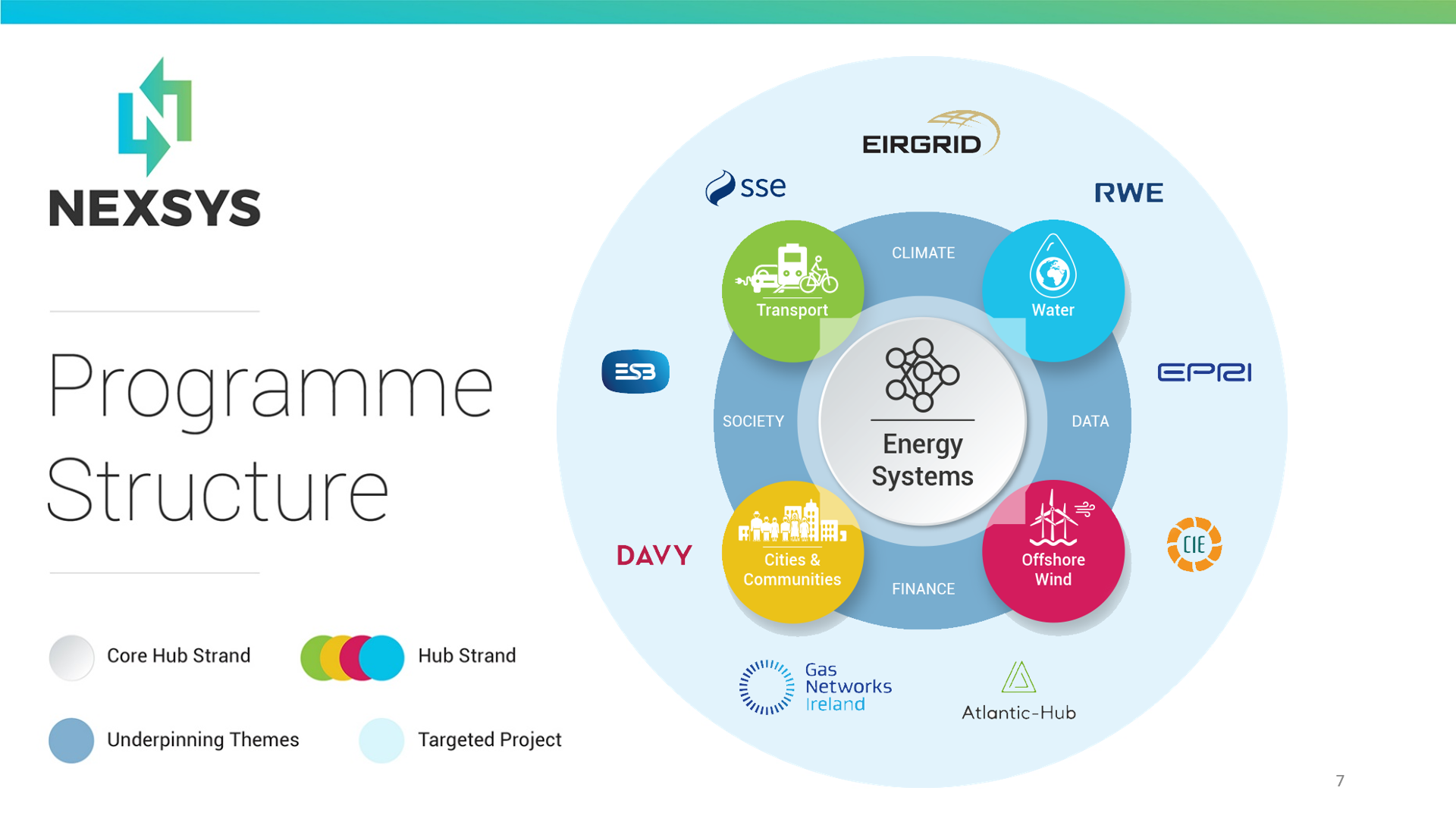The purpose of this strand is to determine how energy systems should evolve to have more renewable electricity towards 2030 and subsequently get to the net zero carbon goal by 2050.
Strand Leaders:
Dr Muireann Lynch (ESRI), Assoc. Prof Terence O’Donnell (UCD)
Academics from across NexSys are leading work packages and projects below
Work Packages |
Explanation |
| ES1Roadmap – Modelling & Data Coordination | Align solutions from all NexSys projects into a roadmap |
| ES2Power System Operation, Adequacy, Balancing & Markets | Provide solutions and metrics for load balancing on the power system |
| ES3Dynamics of Grid Edge and Low-inertia Power Systems | Exploring the impact of increased renewable generation on the dynamics of the power system |
| ES4 The Future Energy Economy | Integrate a detailed representation of the energy and electricity systems into an Irish macroeconomic model |
| ES5Distribution Networks & Devices | Integrate distributed resources into the electrical distribution network |
| ES6Gas Networks & Hydrogen (Utilisation, Storage and Transport) | Investigate the feasibility of hydrogen as an energy source to deliver net zero |
| ES7Finance, Just Transition & Social Justice | An empirical assessment of how the Just Transition impacts disadvantaged groups and how it can be financed. |
| ES8Future Renewable Energy Sources and Stochastic Scheduling | Develop a model to quantify and map renewable generation potential from onshore wind, offshore wind and solar generation out to 2050. |

